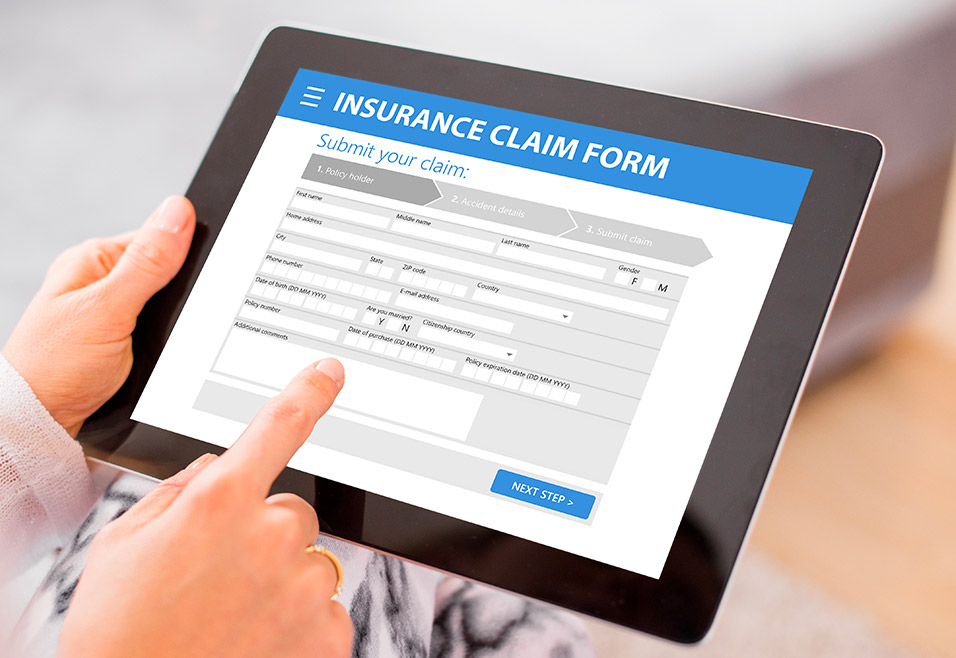
Understanding Your Rights as a Passenger in At-Fault Driver Accidents
Navigating the aftermath of a car accident can be daunting, especially when you find yourself injured as a passenger. The road to recovery often comes with the heavy burden of medical expenses and, possibly, lost income, raising critical questions about your rights to compensation. While much attention is given to drivers in these situations, what happens when you, as a passenger, bear the brunt of an accident’s impact?
This blog dives into the essential information you need to know about filing a personal injury claim as a passenger. Whether the driver of the vehicle you were in is at fault or another party is to blame, understanding your legal pathways is crucial. From determining who to file a claim against to navigating the complexities of insurance policies, we’ll guide you through the steps to securing the compensation you deserve, ensuring you’re not left to shoulder the financial aftermath alone.
Understanding Passenger Rights in Vehicle Accident Claims
In the aftermath of a car accident, passengers have legal rights that entitle them to compensation for their injuries. These rights vary depending on the circumstances of the accident, the driver of the vehicle, and the insurance coverage in place. Understanding your passenger rights will help you navigate the claims process and seek the compensation you need to recover from your injuries.
The Importance of Knowing Your Rights as a Passenger
Knowing your rights as a passenger involved in a car accident is crucial for several reasons. Firstly, understanding your rights empowers you in the claims process. It allows you to make informed decisions, ensuring you receive fair compensation for your injuries. Additionally, having the right knowledge can lead to a fair settlement offer, protecting your best interests and helping you recover both physically and financially.
How Passenger Rights Differ from Driver Rights
When it comes to car accident claims, passenger rights differ from the rights of the driver of the vehicle. As a passenger, you are not usually at fault for the accident, which means your rights focus on receiving fair compensation for your injuries.
Passenger rights center around the legal responsibility of the driver of the vehicle, in addition to any other liable parties. This includes insurance coverage, liability for the accident, and the driver’s duty of care towards passengers. Understanding these unique rights is essential for pursuing a successful claim and obtaining the compensation you deserve.
Identifying Liability in Passenger Injury Claims
Identifying liability is a critical step in passenger injury claims. Liability determines who is responsible for the accident and, subsequently, who may be liable for the injuries sustained. In many cases, the driver of the vehicle will be liable for passenger injuries, but there are situations where other parties may also bear responsibility.
Situations Where the Driver is Liable
In the majority of passenger injury claims, the driver of the vehicle will be held liable for the injuries sustained by the passengers. This means the driver’s insurance coverage will typically be responsible for compensating the injured passengers.
Driver liability in passenger injury claims primarily revolves around the driver’s legal responsibility for the safety of their passengers. This includes factors such as following traffic laws, practicing safe driving habits, and exercising a duty of care towards passengers. If the driver fails in these obligations and the passenger suffers injuries as a result, the driver may be found legally responsible for the damages.
Cases Where a Third Party May be Responsible
While the driver of the vehicle is often the party responsible for passenger injuries, there are cases where a third party may bear liability. Third-party liability can come into play when another motorist, a manufacturer, or a property owner contributes to the accident and subsequent injuries.
Identifying third-party liability is crucial in passenger injury claims to ensure all responsible parties are held accountable for the damages. Pursuing compensation from other parties, in addition to the driver of the vehicle, can help injured passengers obtain the full compensation they deserve.
Exploring Passenger Liability Scenarios
In some circumstances, passenger liability scenarios may arise in car accident claims. While passengers are typically not at fault for the accident, there may be instances where their actions or decisions contribute to their injuries. In these cases, passengers may still be able to seek compensation, either through their own insurance or the driver’s insurance coverage.
Understanding passenger liability scenarios is important for legal advice in claims. Consulting with a personal injury attorney can help injured passengers navigate the legal process and determine the best course of action for pursuing a fair settlement offer. By exploring all possible liability scenarios, passengers can protect their legal rights and pursue the compensation they need for their injuries.
Navigating Different Types of Damages in Passenger Injury Claims
When it comes to passenger injury claims, there are various types of damages that injured passengers may be entitled to. These damages aim to compensate for the losses suffered as a result of the accident. Understanding the different types of damages and how they apply to your claim is essential for seeking fair compensation.
Understanding Medical Expenses
Medical expenses are a significant component of passenger injury claims. It’s crucial to accurately calculate your medical expenses to ensure you receive the proper compensation. This includes costs for immediate medical care, ongoing treatment, medication, rehabilitation, and any other necessary medical services.
Understanding your rights regarding medical expenses is vital for a fair compensation claim. This includes knowing whether your health insurance policy covers your medical bills, what expenses your insurance company will reimburse, and any out-of-pocket expenses you may incur. By understanding your medical expenses, you can fight for the compensation you need to cover your medical care.
Estimating Lost Wages
In addition to medical expenses, passenger injury claims also consider lost wages. When an accident prevents you from working, you may be entitled to compensation for the income you have missed out on. Estimating your lost wages accurately is crucial for a fair compensation claim.
To estimate your lost wages, gather documentation of your pre-accident earnings, including pay stubs and statements from your employer. If your injuries have affected your ability to work in the future, you may also be entitled to compensation for future lost earnings. A personal injury attorney can assist in calculating the appropriate amount for your lost wages claim.
Assessing Pain and Suffering
Pain and suffering is a key element of passenger injury claims, especially for more severe injuries. Pain and suffering damages aim to compensate passengers for the physical and emotional stress caused by the accident, as well as the impact on their overall quality of life.
Assessing pain and suffering damages involves considering factors such as the severity of injuries, the duration of recovery, the impact on daily activities, and the potential for long-term consequences. Professional legal advice can help in evaluating pain and suffering damages and ensure you receive fair compensation for the physical and emotional toll the accident has had on your life.
Critical Actions to Take Post-Accident as a Passenger
After a car accident, passengers must take critical actions to protect their rights and strengthen their claims. These actions include seeking immediate medical attention, gathering evidence, and collecting relevant contact information.
The Role of Immediate Medical Attention
One of the first and most crucial actions to take as an injured passenger is to seek immediate medical attention. Even if you believe your injuries are minor, it’s important to have a medical professional assess your condition. Prompt medical care not only ensures your injuries are properly documented for the insurance claim, but it also safeguards your health and well-being.
This step is even more critical considering the alarming statistics from 2021, which saw 26,325 passenger vehicle occupants die in motor vehicle traffic crashes, marking a 10-percent increase from 23,914 in 2020. Moreover, an estimated 2,092,541 passenger vehicle occupants were injured, also a 10-percent rise from 1,907,011 in the previous year. These figures underscore the significant risks faced by passengers and the vital importance of medical documentation in the aftermath of an accident.
Seeking medical treatment serves as a record of your injuries, linking them directly to the accident. This medical documentation is essential in establishing the cause and extent of your injuries, strengthening your compensation claim. Additionally, follow through with all medical advice and treatment prescribed by your healthcare provider, as failing to do so could impact your claim.
The Importance of Gathering Evidence
- Gathering evidence to support your claim is crucial. Here’s why:
- Witness statements can provide crucial support for your claim, especially if they saw the accident occur or can attest to the circumstances surrounding it.
- Documenting the accident scene, including any skid marks, damage to the vehicles involved, and other relevant details, can strengthen your claim.
- Photographic evidence of the accident scene, your injuries, and any property damage can provide tangible proof of the accident’s impact.
Retrieving Relevant Contact Information
Obtaining the relevant contact information is essential for a passenger injured in a car accident. Gathering the contact details of the other driver involved in the accident, the insurance companies involved, and any witnesses to the accident will ensure you have the necessary information for your claim.
Exchanging contact information with the other driver is a critical step in the aftermath of a car accident. This information will be necessary for the claims process, as it allows your insurance company or personal injury attorney to contact the other driver’s insurance carrier and establish liability. Additionally, notify your own insurance company of the accident and provide them with the contact details of the other driver, insurance companies, and any other relevant parties.
The Benefits of Acquiring the Police Report
Obtaining a copy of the police report can be highly beneficial for your passenger injury claim. The police report serves as an official documentation of the accident, including details about the circumstances leading up to it. Acquiring the police report can assist in the insurance claim process, providing valuable information for your case.
The police report helps in understanding the liability insurance aspects of the accident, as it outlines the statements of the involved parties, witness statements, and the officer’s investigation findings. Having this information can guide your legal advice and help your car accident lawyer build a strong case on your behalf. It’s a good idea to acquire the police report for a clearer understanding of the accident and the role you play in the claim process.
The Process of Filing an Insurance Claim as an Injured Passenger
Once you’ve gathered the necessary information and evidence, it’s time to file an insurance claim for your injuries as a passenger. Depending on the circumstances of the accident, you may need to file a claim against the other driver’s insurance policy or your own driver’s coverage. Understanding the process and the parties involved in your claim is essential for a successful outcome.
When to File a Claim Against the Other Driver
If the other driver is at fault for the accident, you may need to file a claim against their insurance carrier. This process involves submitting the necessary documentation, including medical records, witness statements, and evidence of your expenses, to the other driver’s insurance company. Filing a claim against the other driver’s insurance can result in fair compensation for your injuries and damages.
Circumstances for Filing a Claim Against Your Own Driver
In some cases, you may need to file a claim against your own driver’s insurance coverage. This scenario typically arises when your own driver is at fault for the accident. Your personal injury protection and medical payments coverage may come into play in this situation, providing the necessary compensation for your injuries and expenses. Understanding the circumstances that warrant filing a claim against your own driver is essential for securing fair compensation for your passenger injury claim.
Understanding the Possibility of Multiple Insurance Claims
In certain situations, injured passengers may need to file claims against multiple insurance policies to secure fair compensation. This can arise when the other driver’s insurance coverage is insufficient to cover the full extent of your injuries and damages. Underinsured motorist coverage, which is a part of your own auto insurance policy, can come into play in these cases to provide additional compensation. Navigating multiple insurance claims can be complex, so seeking legal advice is crucial to ensure you receive the compensation you deserve.
The Role of Legal Assistance in Passenger Injury Claims
Navigating the legal process of a passenger injury claim can be overwhelming, especially while dealing with injuries and recovery. This is where the role of legal assistance, such as a personal injury attorney, becomes invaluable. Seeking legal advice early on can help protect your rights, assess the circumstances of your accident, and guide you through the claims process.
When to Consider Hiring a Lawyer
After a car accident, passengers should consider hiring a car accident lawyer to handle their claim. A personal injury attorney can provide invaluable guidance, especially if your injuries are severe or the circumstances surrounding the accident are complex. Many personal injury attorneys offer free consultations, allowing you to discuss your case without any financial obligation. Hiring a lawyer provides peace of mind, as they will handle the legal process on your behalf, fight for fair compensation, and ensure your rights are protected.
The Advantages of Professional Legal Advice
Seeking professional legal advice for your passenger injury claim offers several advantages. Firstly, legal experts have a thorough understanding of personal injury laws and the claims process. They can provide personalized guidance tailored to your unique situation, ensuring you receive a fair settlement. Their experience and expertise can also assist in gathering evidence, negotiating with insurance companies, and navigating the legal process. With professional legal advice, you can have peace of mind knowing that your claim is in capable hands and that you are taking the necessary steps to secure the compensation you deserve.
How Much Compensation Can a Passenger Receive for Their Injury?
The amount of compensation a passenger can receive for their injury varies depending on several factors, including the severity of the injuries, the impact on their daily life, and the insurance coverage available. Fair compensation for passengers in car accident claims covers a range of damages, such as medical costs, lost wages, and pain and suffering.
To determine the appropriate compensation, legal professionals assess the liability insurance of the driver involved in the accident, as well as the injured passenger’s own insurance coverage. They evaluate the medical expenses incurred, the impact of the injuries on the passenger’s ability to work, and the physical and emotional toll of the accident.
Ultimately, the goal of the legal process in passenger injury claims is to secure fair compensation for severe injuries and the associated losses. This compensation helps injured passengers recover physically, emotionally, and financially, ensuring they can move forward with their lives after the accident.
Bottom Line
When it comes to passenger injury claims, it is important to understand that you have rights and options for seeking compensation. Whether the driver is liable, a third party is responsible, or even if you may hold some liability yourself, it is crucial to navigate the process correctly. Documenting evidence, seeking immediate medical attention, and gathering relevant contact information are all critical actions to take after an accident. Depending on the circumstances, you may need to file a claim against the other driver or even your own driver’s insurance. In some cases, hiring a lawyer can greatly benefit your chances of receiving fair compensation. Ultimately, the amount of compensation you can receive for your injury will depend on various factors, including medical expenses, lost wages, and the extent of pain and suffering endured. Don’t hesitate to seek legal assistance and explore your options for obtaining the compensation you deserve.
Frequently Asked Questions
Q: What types of injuries are commonly covered under passenger injury claims?
A: Passenger injury claims typically encompass a broad range of injuries sustained in car accidents. These can include whiplash, broken bones, head trauma, spinal cord injuries, as well as emotional distress and psychological trauma. Seeking immediate medical attention post-accident is crucial for documenting these injuries for the claim.
Q: Who is responsible for compensating the injured passenger in a car accident?
A: The party responsible for compensating the injured passenger in a car accident is typically the driver who caused the accident. However, if the driver was working at the time, their employer may also be held liable. In cases involving multiple drivers, liability may be shared among them. It’s important to consult with a personal injury attorney to determine liability and seek compensation.
Q: How long does it typically take to receive compensation for a passenger injury claim?
A: The timeline for receiving compensation in passenger injury claims varies based on the circumstances. It can range from weeks to months or even years, depending on factors like the severity of injuries and liability disputes. Seeking guidance from a personal injury attorney can help navigate the claims process for a fair settlement.
Q: Who is responsible for paying for a passenger’s medical bills after an accident?
A: The responsible party for a passenger’s medical bills after an accident is typically the person at fault. If the driver is at fault, their insurance company may cover the medical expenses. If a third party caused the accident, their insurance company may be responsible.


